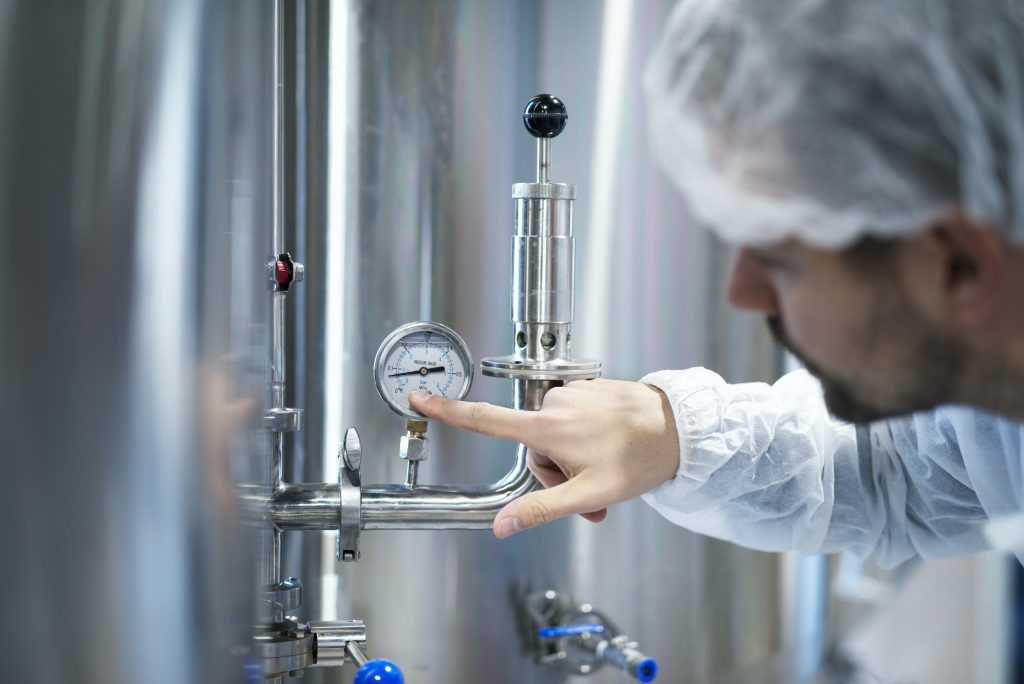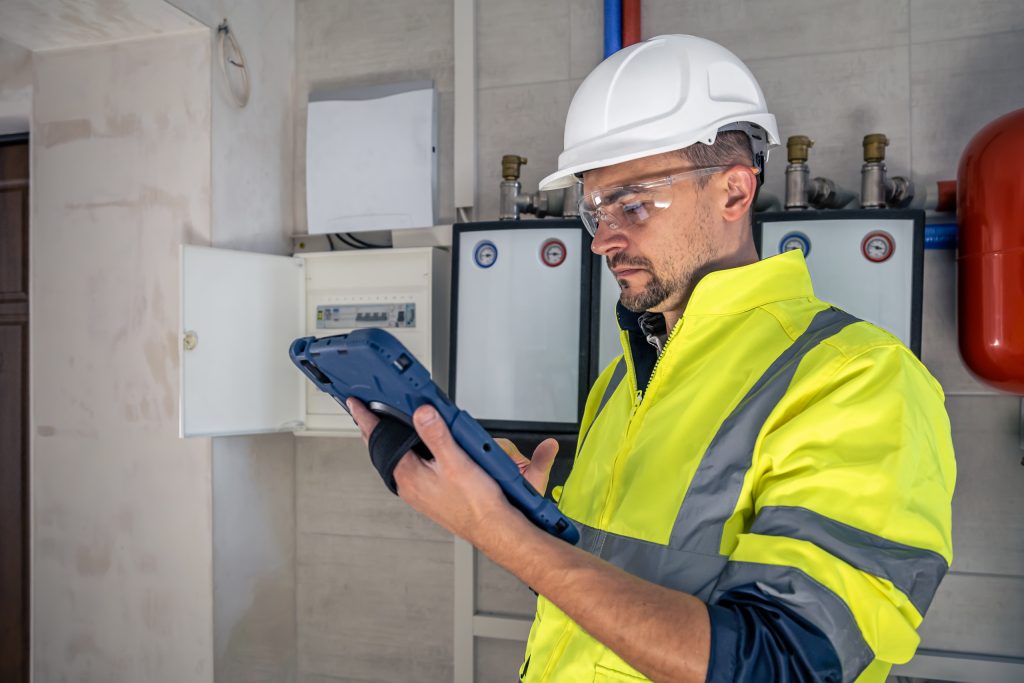November 10, 2025 at 11:37 pm | Updated November 10, 2025 at 11:37 pm | 4 min read
Ethylene monitoring is central to maintaining fruit quality through storage, transport, and ripening. Even trace levels of ethylene, measured in parts per billion, can alter respiration rates, accelerate ripening, or shorten shelf life. Because ethylene’s impact varies across commodities and handling stages, the way it’s monitored determines how effectively operations preserve product quality and reduce waste.
Monitoring systems come in two main formats: fixed (installed in a ripening room or storage environment) and portable (handheld instruments used for spot checks or field measurements). Both serve important but distinct roles in managing ethylene levels. Understanding their differences helps postharvest professionals decide which setup fits their operation best.
Fixed Ethylene Monitoring Systems

Fixed ethylene monitoring systems are designed for continuous, automated measurement inside ripening rooms or controlled atmosphere facilities. Instruments like the Felix Instruments F-901 AccuStore integrate with facility controls to regulate ventilation, temperature, and gas flow in real time.
Subscribe to the Felix instruments Weekly article series.
By submitting this form, you are consenting to receive marketing emails from: . You can revoke your consent to receive emails at any time by using the SafeUnsubscribe® link, found at the bottom of every email. Emails are serviced by Constant Contact
Key features:
-
Continuous data capture: Fixed systems measure ethylene, CO₂, and O₂ concentrations around the clock.
-
Automation-ready: They connect to ripening room controllers to automatically trigger gas adjustments.
-
High precision: With sensors calibrated to parts-per-billion accuracy, they provide stable long-term readings.
-
Data logging: They store and transmit readings for tracking trends and auditing gas management protocols.
This constant flow of data allows operators to maintain narrow ethylene thresholds without manual sampling. It is ideal for large-scale operations such as banana ripening rooms, apple storage facilities, or packhouses where small gas fluctuations affect uniformity and throughput.
Felix’s F-901 systems go further by integrating multiple gas sensors, advanced filtration, and rugged enclosures suitable for humid, temperature-controlled environments. Users can configure them to monitor several chambers simultaneously, centralizing control while minimizing labor.
Portable Ethylene Analyzers

Portable analyzers like the Felix F-900 Portable Ethylene Analyzer are designed for mobility and flexibility. They deliver high-accuracy readings directly from produce rooms, shipping containers, or research plots. For teams working across multiple sites, portability is essential.
Advantages include:
-
Immediate diagnostics: Spot-check gas levels at any stage of handling.
-
Compact design: Easy to carry, quick to deploy in the field.
-
Versatility: Measures ethylene along with CO₂ and O₂, helping diagnose respiration dynamics.
-
Calibration simplicity: Built-in routines keep sensors accurate without external equipment.
Researchers, quality managers, and technicians rely on portable analyzers to identify localized ethylene hotspots or validate the performance of fixed systems. For smaller facilities or variable operations, these devices deliver precision without the cost or infrastructure of a fixed network.
The F-900 stands out in this category with its photoacoustic detection technology, delivering ppb-level sensitivity while remaining compact. It also logs data over time, allowing field teams to collect continuous readings during transport or trials.
Comparing Fixed and Portable Systems
| Feature | Fixed Systems (e.g., F-901) | Portable Analyzers (e.g., F-900) |
|---|---|---|
| Measurement mode | Continuous | Spot or logged sampling |
| Coverage | Multi-room, automated | Single-point, manual |
| Installation | Permanent, integrated | Handheld, mobile |
| Accuracy | High and stable | High, field-calibrated |
| Data use | Long-term facility management | Field research and diagnostics |
| Ideal user | Ripening centers, storage operations | Researchers, inspectors, small growers |
While both solutions support precise ethylene monitoring, their best uses differ. Fixed systems automate ethylene control across large operations, ensuring uniform ripening and minimal waste. Portable units provide flexibility and quick diagnostics where conditions or locations change frequently.
Many operators benefit from combining both. Fixed systems maintain long-term control, while portable analyzers verify conditions, validate readings, or provide backup during maintenance.
Choosing the Right Ethylene Monitoring Setup
The decision depends on several factors:
-
Scale and layout: Multi-room ripening centers benefit from fixed systems with centralized control.
-
Mobility needs: Fieldwork, research, or on-the-go inspections call for portable analyzers.
-
Data requirements: If long-term trend data and automation are critical, fixed systems offer deeper integration.
-
Budget and infrastructure: Portable instruments require less setup and are easier to share among teams.
Felix Instruments’ lineup is designed to cover both ends. The F-901 AccuRipe and AccuStore units provide high-precision, automated ethylene management. The F-900 Portable Analyzer complements them with versatile, on-demand measurement capability, all using the same trusted sensor technology and calibration support.
Why Felix Instruments Leads in Ethylene Monitoring
Felix Instruments has developed its gas analysis line specifically for the fresh produce sector. Unlike generic gas detectors, our analyzers are tuned for agricultural environments where humidity, temperature shifts, and trace-level accuracy matter.
Every instrument is supported by field calibration services, durable enclosures, and software designed for intuitive operation. The consistent measurement platform across fixed and portable systems allows users to correlate data across different environments, from storage rooms to shipping containers.
The company’s focus on user-centered design also means faster setup, reliable maintenance, and strong technical support. Together, these factors make Felix Instruments a trusted choice among ripening facility managers and postharvest scientists worldwide.
FAQs
1. Can fixed and portable ethylene analyzers be used together?
Yes. Many facilities use portable analyzers to confirm and supplement readings from fixed systems, especially during equipment calibration or maintenance.
2. How often should ethylene monitoring instruments be calibrated?
Calibration frequency depends on usage and environment. Felix Instruments provides built-in calibration routines and recommends periodic factory servicing to maintain accuracy.
3. Are portable analyzers suitable for continuous ethylene monitoring?
Some portable models, such as the F-900, can log continuous data over hours or days, but fixed systems remain better for long-term, automated measurement across multiple rooms.
Related Products
Most Popular Articles
- Spectrophotometry in 2023
- The Importance of Food Quality Testing
- NIR Applications in Agriculture – Everything…
- The 5 Most Important Parameters in Produce Quality Control
- Melon Fruit: Quality, Production & Physiology
- Fruit Respiration Impact on Fruit Quality
- Guide to Fresh Fruit Quality Control
- Liquid Spectrophotometry & Food Industry Applications
- Ethylene (C2H4) – Ripening, Crops & Agriculture
- Active Packaging: What it is and why it’s important






